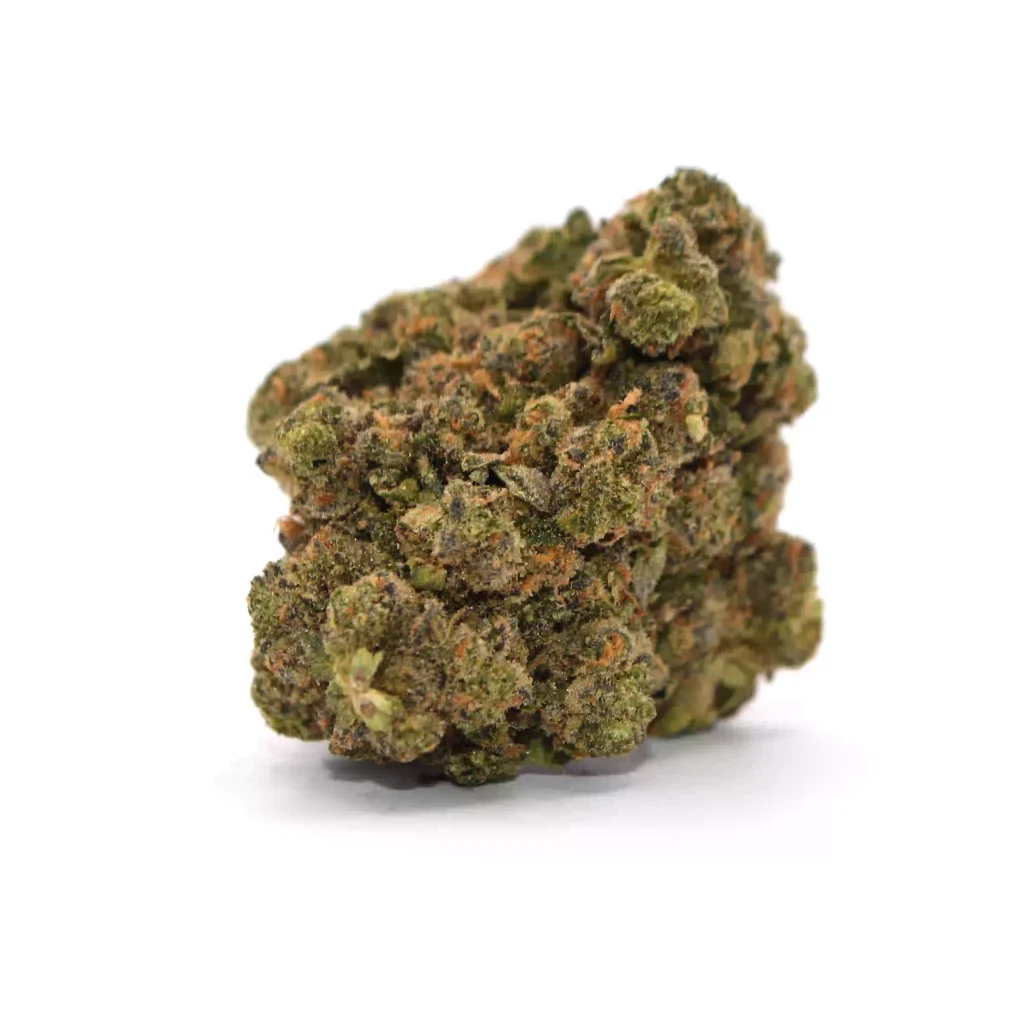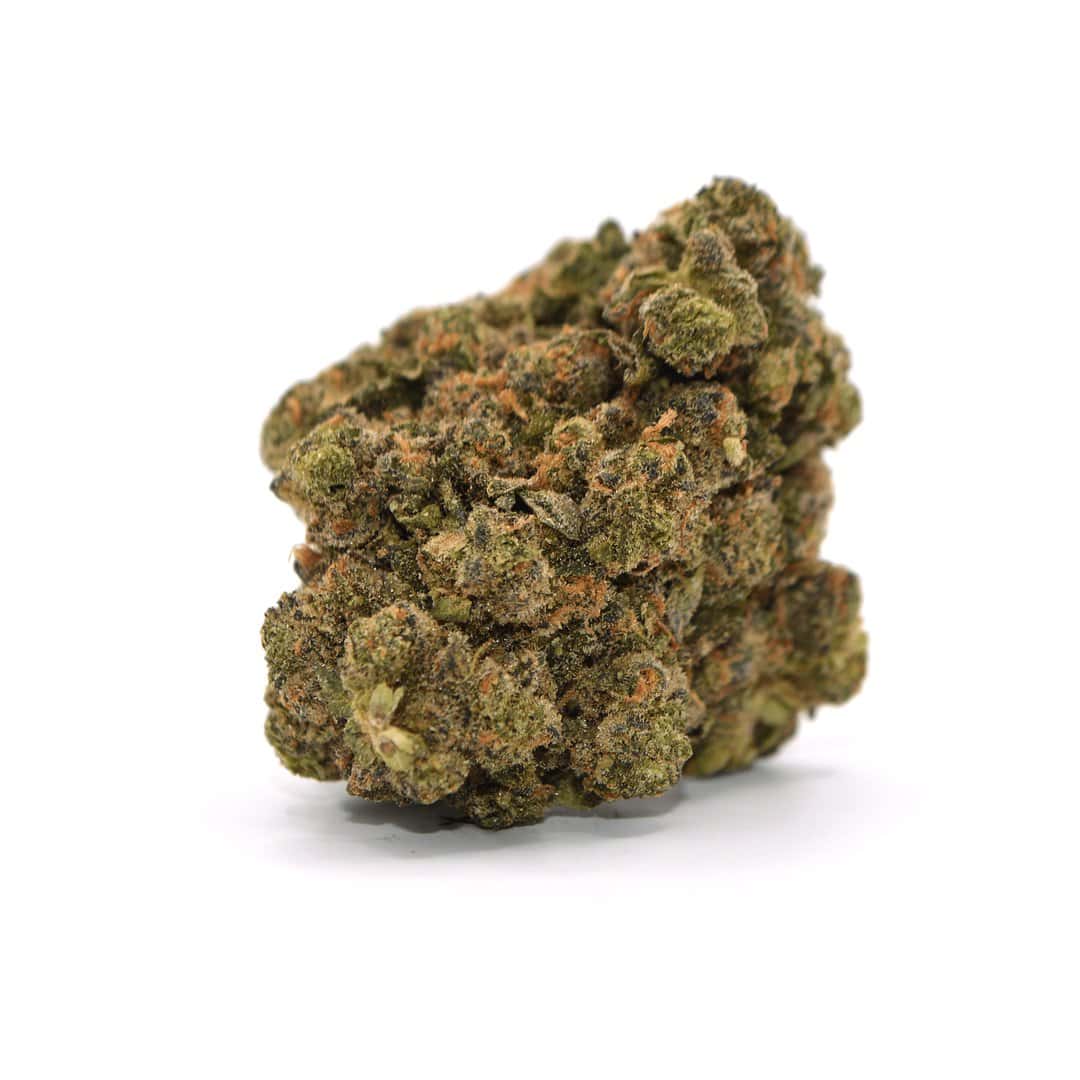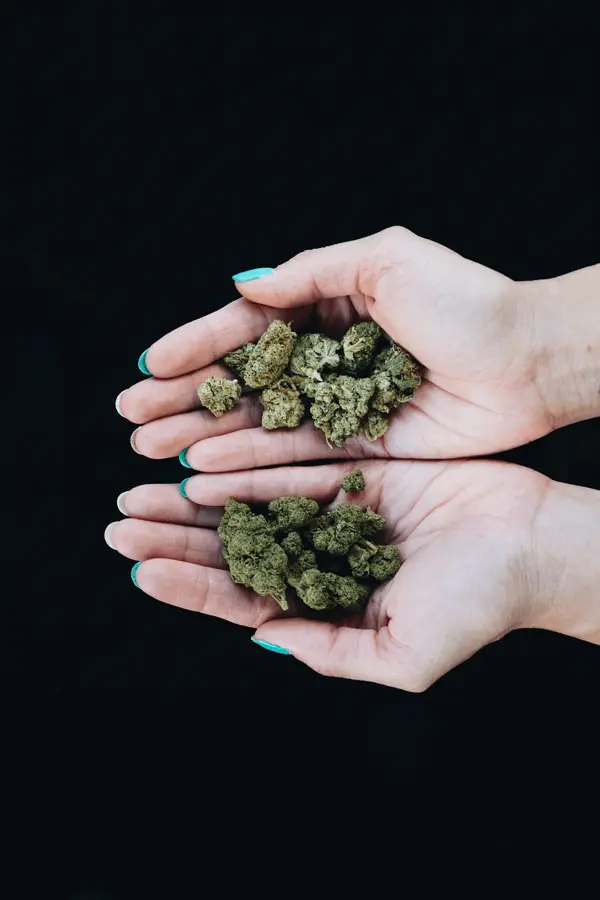
Depression is a complex mental illness that affects millions of people worldwide. While traditional treatments such as therapy and medication can be effective for some people, others still struggle with its symptoms. This has led many to begin exploring alternative treatments, including medical cannabis.
In recent years, the potential benefits of cannabis for depression have been widely researched, with some studies showing promising results. In this guide, we look at the potential benefits of cannabis for depression, including the most popular strains and doses for treatment.
Depression is a mental illness that affects a person's mood, thinking and behaviour. There are different types of depression such as major depression, persistent depressive disorder, bipolar disorder and seasonal affective disorder.
Symptoms of depression include feelings of sadness or hopelessness, loss of interest in activities you used to enjoy, changes in appetite or sleep, and difficulty concentrating.
The causes of depression are complex and can vary from person to person. Risk factors for depression include genetic factors, environmental factors such as stress or trauma in childhood or adulthood, hormonal imbalances, medical conditions such as chronic pain, substance abuse, and other mental disorders such as anxiety or personality disorders.
Understanding the underlying causes of depression is important for effective treatment strategies that alleviate symptoms and improve overall quality of life.
Clinical depression is a mood disorder that affects millions of people worldwide. Depression is characterized by persistent feelings of sadness, hopelessness and loss of interest in activities that used to be enjoyable. It is a debilitating illness that can significantly affect quality of life, relationships and the ability to cope with everyday life.
Conventional treatment for depression includes antidepressants and therapy. As an aid, there is a growing interest in treating depression with medical cannabis.

Cannabis, also known as marijuana, is a plant that contains chemical compounds called cannabinoids. These compounds interact with the body's endocannabinoid system to produce various effects such as pain relief and relaxation (1).
One of the best known cannabinoids is tetrahydrocannabinol (THC), which causes the psychoactive 'high' associated with cannabis use. In recent years, there has been increased interest in the use of cannabis for medicinal purposes[5], including as an antidepressant.
Although research on this topic is still limited and ongoing, some studies have found that certain strains of cannabis can help alleviate symptoms of depression and anxiety, with a low potential for side effects [2].
However, determining the appropriate dosage for cannabis use in the treatment of depression remains a challenge due to varying levels of individual tolerance.
Cannabinoids are the active compounds in cannabis that interact with our body's endocannabinoid system. There are more than 100 different types of cannabinoids in cannabis, but the two best known and most studied are THC and CBD.
While THC is known for its psychoactive effects and addictive potential, CBD has been shown to have therapeutic effects such as reducing anxiety.
Researchers have investigated the effectiveness of using certain cannabinoids in the treatment of depression. One study found that CBD can improve mood and reduce anxiety in people suffering from depression (3). However, more research is needed to fully understand how these cannabinoids affect our brain chemistry and how they affect mental health conditions such as depression.
Terpenes are organic compounds found in cannabis plants and are responsible for their aroma and flavour. They also play a key role in enhancing the therapeutic effects of cannabinoids such as THC and CBD. In addition, terpenes have been shown to affect mood and anxiety levels, making them a vital component in the treatment of depression with medical cannabis.
Research has shown that some terpenes can potentially alleviate symptoms of depression (4). For example, limonene is a citrus-scented terpene known to reduce stress and improve mood, while pinene is a pine-scented compound thought to improve mental clarity. When selecting potentially suitable strains for cannabis therapy that could support effective treatment of depression, several strains with high levels of these specific terpenes come into consideration.
Cannabis has shown promising results in the treatment of depression due to its mood-regulating effects. THC and CBD, the two main components of cannabis, have been shown to interact with the endocannabinoid system, which regulates various processes including mood. Studies have also shown that cannabis use can increase levels of serotonin, a neurotransmitter known for its role in mood regulation (5).
In addition to regulating mood, cannabis can be used for pain management[6] and has also been found to reduce anxiety and stress - both common symptoms of depression (2). However, it is important to note that although some studies suggest a benefit of using medical cannabis to treat depression, more research is needed before definitive conclusions can be drawn about the effectiveness of this treatment option.
The anti-inflammatory effects of CBD make it a promising candidate for neuroprotection. Inflammation in the brain is associated with various neurodegenerative diseases, and CBD's ability to reduce inflammation could help prevent or slow these diseases (6).
The endocannabinoid system plays a key role in mood regulation. It is responsible for maintaining balance and stability in the body, including emotional states (1). THC and CBD, the two main cannabinoids found in cannabis, have been shown to affect serotonin levels, which are important for mood regulation (5). Studies also suggest that terpenes found in different cannabis strains may potentiate or attenuate the mood-enhancing properties of cannabinoids (4).
Understanding how these components interact can help to better tailor medical cannabis treatment to the symptoms of depression. However, it is important to note that dosing and strain selection should be guided by a healthcare professional experienced in treating depression with medical cannabis.

CBD has been shown to help alleviate anxiety disorders such as post-traumatic stress disorder or generalized anxiety disorder. Studies have shown that CBD can help regulate mood and reduce anxiety and anxiety-related behaviors (7). THC, on the other hand, can have an anxiolytic effect under certain conditions, but high doses can actually increase anxiety (8).
Taking products from across the cannabis spectrum can provide optimal anxiety reduction due to the entourage effect, whereby different cannabinoids and terpenes interact to enhance their therapeutic potential. Other methods, such as edibles or tinctures, could provide longer-term relief from symptoms of depression and anxiety.
In recent years, a number of studies have been conducted on the potential use of cannabis for depression. Researchers are trying to determine whether cannabis has a positive effect on the treatment of depression and anxiety disorders. Most studies to date have focused on cannabinoids such as THC and CBD.
Although data are limited, some clinical trials have shown that medical cannabis can be used to effectively treat symptoms associated with depression (10). However, further research is needed before conclusions can be drawn about its effectiveness in long-term treatment.
Medical cannabis could potentially help alleviate some types of depressive symptoms, such as low mood or loss of appetite (11). However, it is important to note that recreational use of uncontrolled marijuana may exacerbate rather than alleviate mental health conditions such as depression and anxiety disorders.
Although preliminary results on the use of medical marijuana to treat some depressive symptoms seem promising, more research on larger populations is needed before a definitive conclusion can be drawn on the therapeutic benefit compared to placebo or traditional antidepressants commonly prescribed by doctors today.
Sour Diesel, Granddaddy Purple and Cannatonic are among the most popular varieties for treating depression with medical cannabis. Sour Diesel is a sativa-dominant strain that can have a stimulating and energizing effect on the mind. Granddaddy Purple, on the other hand, is an indica-dominant strain that can relieve anxiety and promote relaxation. Finally, Cannatonic is a balanced hybrid with a high CBD content that can alleviate symptoms of depression without inducing a high.
If you are interested in using medical cannabis to treat depression, you must consult a licensed physician to determine if medical cannabis is appropriate for you and which strain is best for your case.
Sour Diesel has a stimulating and invigorating effect and can promote a sense of happiness and motivation, making it an ideal choice for people who have bad mood problems.
As with other medications, it is important to start with a low dose when taking Sour Diesel for depression. The recommended dosage varies depending on factors such as weight, tolerance level, and route of ingestion. By starting with a low dose and gradually increasing it, you can minimize potential side effects while achieving effective relief.

Although Sour Diesel is generally well tolerated by most users, there are some potential side effects associated with taking Sour Diesel to treat depression. These may include dry mouth, red eyes, increased heart rate, and increased blood pressure. It is always important to consult a physician before starting any new treatment with medical cannabis or other medications to ensure safe use and optimal benefit.
Granddaddy Purple
is a popular strain of cannabis that is more commonly used for depressive symptoms This hybrid strain is high in THC and low in CBD, making it effective for treating depression as THC is known to improve mood and also has an effect on recurring negative thoughts. Compared to other strains used to treat depression, Granddaddy Purple has a strong sedative effect that can help users relax and sleep better.
Some users report feeling more creative after consuming this strain, while others have experienced an increase in appetite. Overall, Granddaddy Purple is considered one of the best strains for helping to alleviate symptoms of depression due to its powerful effects, which include

Cannatonic is a cannabis strain that has gained popularity among people who want to relieve depression. This particular strain contains both CBD and THC, making it an attractive option for those who want to avoid the psychoactive effects often associated with traditional marijuana use.
It is recommended to start with a low dose and gradually increase it until the desired effect is achieved. This approach helps individuals find the minimum effective dose that minimizes side effects while maximizing therapeutic benefit.
It is important to consult a doctor before using cannabis to treat depression. He or she can help select the right dosage based on medical history, current medication, and other factors that may affect the response to cannabis treatment. They can also monitor possible side effects or drug interactions that may occur during treatment.
When using cannabis to treat depression, it is important to start with a low dose and gradually increase the amount until you find the right amount. This way you can avoid possible side effects. If you start slowly, your body will also get used to the new substance more easily.
Gradually increasing the dose will help you see how much cannabis affects your mood and depression symptoms without overwhelming your system with too much THC or CBD at once. This dosing method provides a safe way to experiment with different strains so you can learn what works best for treating depression while avoiding negative side effects.

If you are considering using cannabis to treat depression, it is important to consult a doctor. Doctors play a vital role in prescribing and monitoring the use of cannabis to treat depression. They can help determine the appropriate dosage and method of administration, as well as discuss possible side effects.
Before starting medical cannabis treatment, it is also important to discuss any pre-existing medical conditions or concerns that could affect its effectiveness or safety. Potential drug interactions should also be considered, as some medications can have negative interactions with cannabis. By consulting with a healthcare professional, individuals can ensure that they receive the best possible treatment plan tailored to their specific needs and circumstances.
Other considerations when using cannabis to treat depression include the potential benefits and risks associated with cannabis use. Research into the therapeutic use of cannabis for psychiatric disorders, including depression, is still in its early stages (12). While some studies have shown preliminary support for cannabinoids, particularly cannabidiol (CBD), in reducing social anxiety and as an adjunctive treatment for schizophrenia, evidence remains limited (13).
It is important to remember that cannabis use in youth can affect the still-developing brain and that smoking cannabis can damage the lungs. Given these factors, it is essential to approach the use of cannabis to treat depression with caution and under the guidance of a healthcare professional. Further research is needed to better understand the potential benefits and harms of cannabis as a treatment for depression.
You should be able to see what you're looking for when you're ready to go, but you'll never have to worry about it. If you don't have any problems, you will be able to see what you feel:

Based on the available information, cannabis is a promising tool to help treat symptoms of depression. However, it should be noted that knowledge in this area is still at an early stage and further research is needed to fully understand the therapeutic effects of cannabis in psychiatric disorders.
While there are anecdotal positive studies suggesting potential benefits of cannabinoids such as cannabidiol (CBD) for reducing social anxiety and as an adjunct to schizophrenia, the overall evidence is still limited. Some case studies suggest that medical cannabis may be beneficial for improving sleep and post-traumatic stress disorder (PTSD), but the current evidence is weak. In addition, preliminary research has shown no benefit from therapeutics high in delta-9-tetrahydrocannabinol (THC) for depression or CBD for mania.
It is important to stress that sufferers should consult a doctor before considering cannabis to treat depression. Doctors can provide individualized advice based on a person's specific condition and medical history. You may also consider important factors such as potential risks, drug interactions and the suitability of cannabis as a treatment option. It is always advisable to seek professional advice to ensure safe and effective use.
Moreover, cannabis is not for everyone and it is important to consider the potential side effects and risks associated with its use. Cannabis is depressant and can cause drowsiness. It can also cause unpleasant side effects and negatively affect brain development and lung health in adolescents. Therefore, careful and responsible consumption is necessary and medical supervision can help individuals make informed decisions about cannabis use.
In summary, while there is some encouraging evidence for the potential efficacy of cannabis in the treatment of psychiatric disorders, including depression, it is still too early to recommend cannabinoid-based interventions. It is important to talk to your doctor to assess individual circumstances, potential benefits and risks associated with cannabis use for depression.
